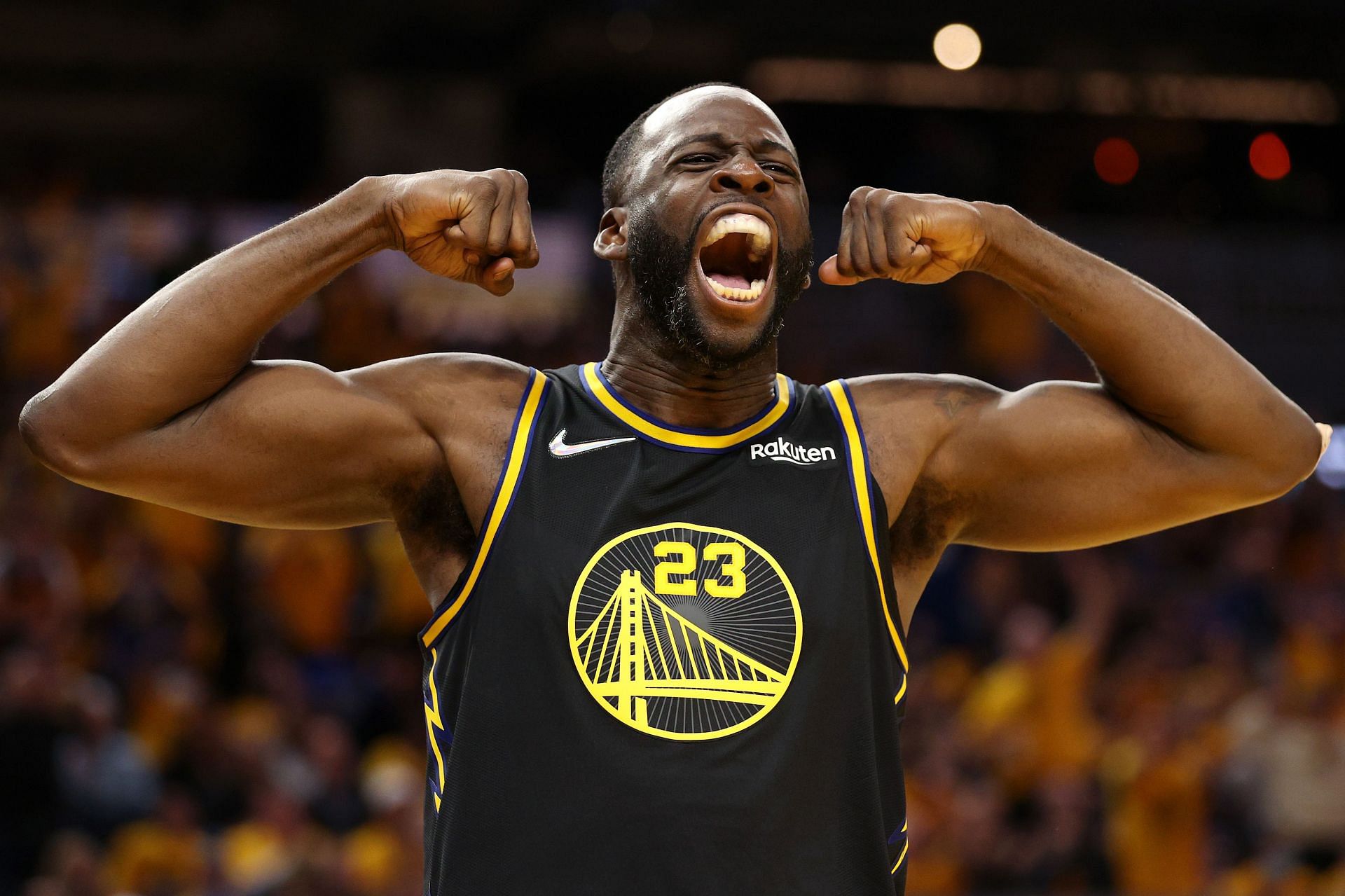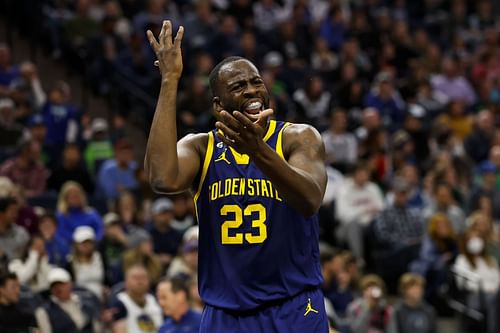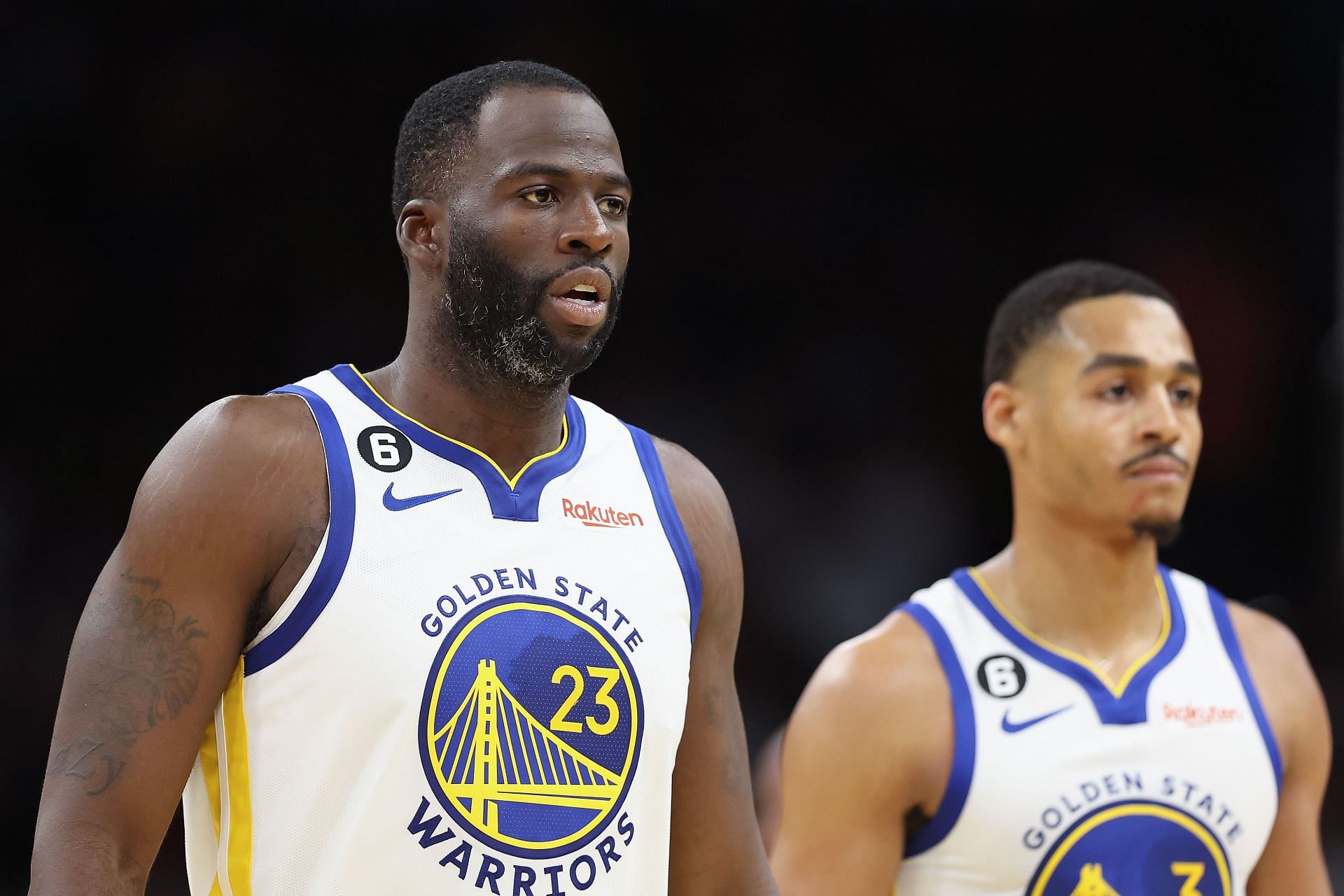
Why Draymond Green's stats do not reflect the true impact he has on games
If the average NBA fan were to look at Draymond Green's stats and his career average of 8.7/6.9/5.5, pegging him to be a Hall of Famer might be tough sell. Green, regardless, is a four-time NBA champion, a two-time All-NBA honoree, a four-time All-Star and the 2016-17 Defensive Player of the Year.
Traditional numbers aren't enough to define players like Green, and the dissonance between his stats and his accolades reflects just this truth.
Despite Green's stats, to better understand what he does, we carefully elaborate his role, both on offense and on defense.
Draymond Green's stats undermine his value because defense isn't well represented in the traditional boxscore

Traditional NBA boxscores have almost always given preference to players with a proclivity for scoring rather than for defense. Steals and blocks are two isolated aspects of good defense, and perhaps the only other stat on the boxscore that does defenders justice is the box plus/minus.
Draymond Green, like many great pure defenders, is a victim of such biases. Advanced stats like defensive rating and real plus/minus give a clearer picture of what Green does on the floor. In fact, Green's defensive box plus/minus and defensive win shares, especially in the playoffs, are to be marveled at.
Note : Defensive Box Plus/Minus (DBPM) is an estimate of defensive points contributed per 100 possessions, Defensive Win Shares (DWS) is an estimate of the number of wins contributed by a player due to defense, and Defensive Rating (DRTG) is an estimate of the number of points allowed per 100 possessions.
Between 2014-15 and 2017-18, Green led the league in defensive win-shares in the playoffs every single year. Also, he has been top 10 in steals per game on five occasions during the Warriors' dynasty years and had the second-best defensive rating in the 2015, 2017 and 2018 playoffs.
Green's DPOY campaign during the 2016-17 season saw him give up less than one points per possession as measured by his DRTG. He has done this only thrice in the regular season 2013-14, 2014-15 and 2016-17).
If the numbers are overwhelming, it isn't too hard to see them translate on the floor.
The overarching theme of breaking down Green's defensive prowess comes down to three specific skills that he has mastered: switching, help defense and awareness.
Green is unequivocally recognized as one of the greatest defenders to ever play the game. But if there's one thing that he might just be the best at, it is help defense (supporting an on-ball defender as an off-ball defender).
Green has, time and again, shown an incredible ability to not just help, but recover adequately to defend his own man, essentially guarding one-and-a-half players in a single possession.
At 6-foot-6, his ability to switch to any player on the floor gives him remarkable versatility. On any given night, Green can sufficiently hold down 7-foot centers and 6-foot guards all by himself.
His strip against the 6-foot-11 Nikola Jokic to seal the playoff series against the Denver Nuggets in the first round last season exemplifies his remarkable ability.
How Draymond Green contributes on offense

While Green hangs his hat on defense, he is far from an offensive liability. In fact, without him, there is a pretty good argument that the Golden State offense falls apart in their dynasty years.
Green functions essentially as an "offensive outlet" for the Warriors, especially during the playoffs, when the game is slower and more methodical. It is also to be noted that while Green's defense can translate to any team, his role as an initiator is exclusive to the way the Dubs play basketball.
Green's role in initiating the offense by calling out plays, creating imbalances in defenses, is valuable. But the single most crucial aspect of what he does offensively, as he himself has said, is to get Steph Curry off the ball.
Green, therefore, has been played a vital role in several of Curry and Klay Thompson's high-scoring performances. In fact, he has assisted Curry in more 3-pointers than any of Steph's teammates.
Draymond Green's stats reflect only a small fragment of his contributions, and should at best be taken with a grain of salt. Basketball-Reference.com calculates his Hall of Fame chances at 77.4%.